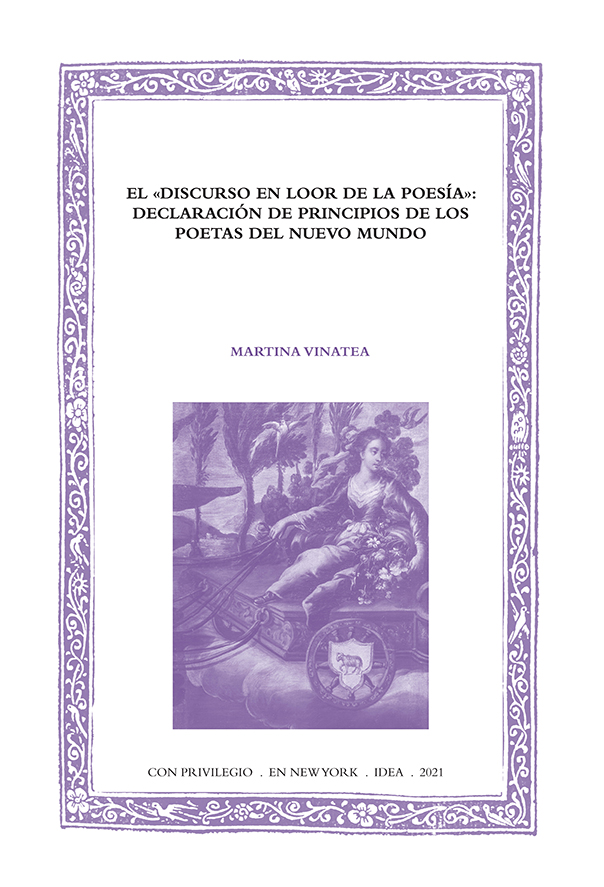
Libraries
Libraries
El «Discurso en loor de la poesía»: declaración de principios de los poetas del Nuevo Mundo
The Discurso en loor de la poesía, an anonymous prologue to the Primera parte del Parnaso antártico de obras amatorias, by Diego Mexía de Fernangil (1608), is an exponent of the group of poems aimed at praising and defending poetry from those who do not consider the importance of its empire. This defence is made on behalf of a group of authors who, in the last decade of the 16th century and the first two decades of the 17th century, carried out their literary work and formed the so-called Academia Antártica.
The Discurso is an attempt to reflect on the act of writing poetry with two important additions: the art of writing poetry in the New World, specifically in Peru, and the art of writing by the feminine hand. It is also evident that it is an attempt to establish a new canon that is beginning to be built in the New World and which is based on the appropriation of classical models by American writers. The Discurso should be seen as a more ambitious poem than the mere introduction to Mexía’s translation. In fact, it is a work that is linked to the foundation of the American Creole project.
Martina Vinatea, PhD in Hispanic Philology and PhD in History, is a senior lecturer in the Academic Department of Humanities at the Universidad del Pacífico (Lima, Peru) and co-director of the Centro de Estudios Indianos (CEI) / Proyecto Estudios Indianos (PEI) at the University of Navarra and the Universidad del Pacífico. Her recent work has focused on Hispanic and viceregal Peruvian women’s convent poetry and on the works of the poets of the Academia Antartica.

